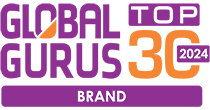How Do Payday Loans Differ From Other Types of Loans
April 25, 2020
It is easy to confuse payday loans for personal loans. Payday loans are short-term financing products with which a lender fixes huge fees on small amounts. Payday loans are secured by the borrower’s payslips. Personal loans, on the other hand, are short-term or long-term loan products that can be secured or unsecured. Borrowers can apply from banks, credit unions or private lenders, or family and friends.
How do payday loans work?
Firstly, payday loans are very risky. They arguably have the highest APR in the lending industry. Therefore, lenders usually approve little amounts since they carry hefty fees in terms of interest.
Payday loans mature within 30 days from the day of approval. Due to their short-term status, they are very expensive. The fees and the interest is payable at the end of the maturity period. Literally, payday loans are unsecured; however, you cannot be approved for it without proof of income. However, the high rates of income are due to lower credit rating values and poor credit history. Therefore, the people who apply for these forms of financing cannot access credit from traditional lenders such as banks and credit unions.
One is eligible for a payday loan if they are over 18 years of age, with full citizenship of the country. Also, you have to be employed and in ownership of a bank account. Also, you have to be in possession of a valid national identity card.
The loan cycles
With payday loans, the borrower takes a loan and is supposed to repay it in full at the end of the month before the next paycheck. However, this is not normally the case. Borrowers often struggle to raise enough cash to repay for the interest, fees, and the loan principal on their check and have money to survive on for the month as well as facilitate other utilities. Due to this, they are left with little option than to default on the loan. The balance on the loan is rolled over to the next month with the fees, and previous interest and is subjected to new rates. This creates a loan cycle which becomes very difficult to pull out of. Reports show that only 20% of payday loans are repaid at the expiry period. Otherwise, a whopping 80% is rolled over to the next month. This culture makes this type of loan incredibly expensive.
Furthermore, if the borrower defaults and is unable to service the debt, then the lender will try to get it from the borrower’s bank account. If this attempt fails because of insufficient funds, the lender will withdraw leaving the account holder to be charged with a bank overdraft fee. The fees will accrue until more money is deposited into the bank account.
Apart from being costly, payday loans also cannot be used to improve your credit score. Lenders do not report financial activities to the credit bureaus. Therefore, even if you repaid your debt on time and in full, there won’t be any effect on your credit rating.
How do personal loans work?
Banks, credit unions and all other types of lenders in the market can offer personal loans. These loans can be secured or unsecured. Secured loans have generally lower rates of interest compared to the unsecured loan products. Personal; loans can be taken for anything, loan refinancing, wedding, vacation, Christmas, emergencies, etc.
Anyone who is of legal age and in possession of an identity card is eligible to apply for a personal loan. Having a higher credit score is an added advantage since you can qualify for a loan with lower interest rates. This is why personal loans are popularly used to repay credit card balances. Also, they are preferred to pay for or purchase costly items such as vehicles compared to credit cards. However, in some states like Washington, it is best to find debt relief programs in Washington state to pay off your credit card debt.
The rates of interest vary from lender to lender, types of loan and credit history. Different lenders apply different rates; some apply higher rates while some apply lower rates on the same loan product. So, depending on the lender you get, your loan will end up being cheaper or expensive. Loan types also differ in the rates, the riskier the loan the higher the rates of interest. Also, a good credit score attracts lower rates. a poor score, on the other hand, will result in high-interest rates. Furthermore, the debt-to-income ratio of an individual highly determines the rates of interest.
Comparisons
Terms of loan: – personal; loans can be short-term or long-term. Typically, they are due in two to seven years. Payday loans are strictly short-term with a period of loan not exceeding 30 days.
Rates of interest: – payday loans have generally higher rates compared to personal loans. The lower rates make it possible for an individual to apply for personal loans to repay other loans or consolidate credit card balances.
Ease of access: – payday loans can be accessed in half an hour. Since the credit history of the applicant is not retrieved and analyzed, it gives the lenders convenience in loan processing. Personal loans, on the other hand, can take a few days to process. And this is dependent on the lender; banks usually process for at least 45 days.
Cost: – payday loans are dreadfully expensive. A majority of people who opt to go for these types of finances often struggle to repay and get trapped in a debt cycle that takes ages to break themselves from. Personal loans are comparatively cheaper. They are even cheaper than credit cards.
The bottom line
Both personal loans and payday loans can be explained as unsecured loans. However, there are cases with personal loans where you can secure the loan to be charged less on interest. If you want a safer, and easier, and a less costly loan, then go for a personal loan, lest you risk getting trapped in a loan cycle that may never end. Payday loans are easier to get. But difficult to repay. Also, it would help if you deal with a licensed moneylender only.























